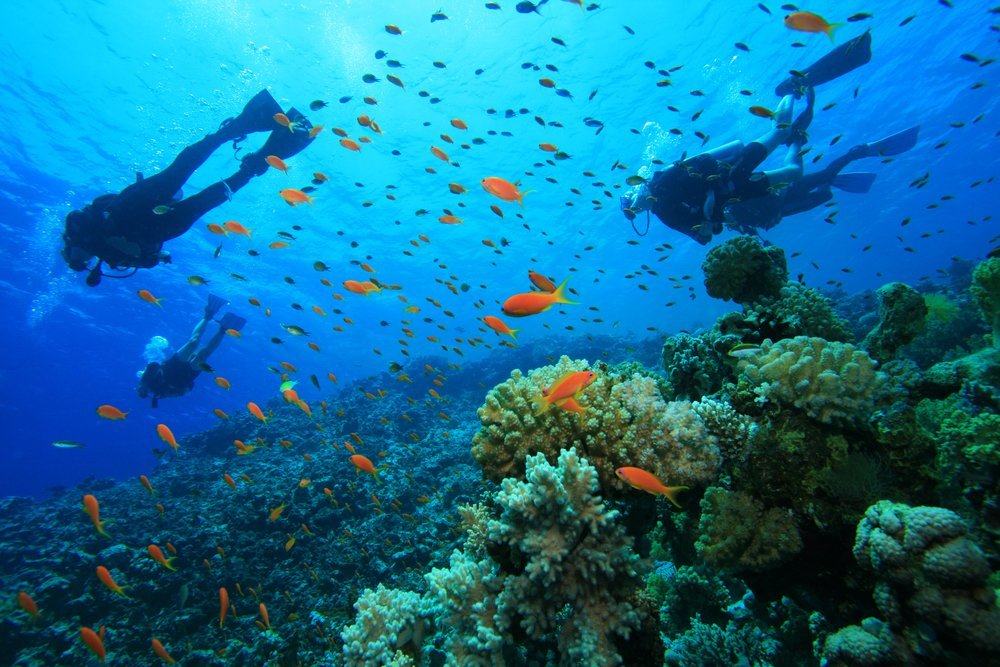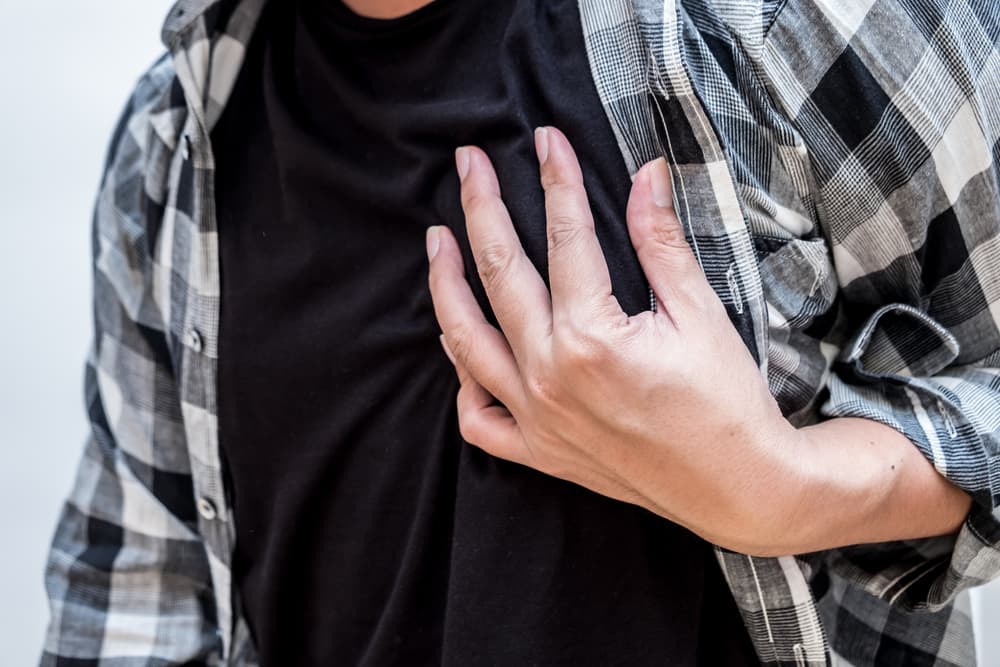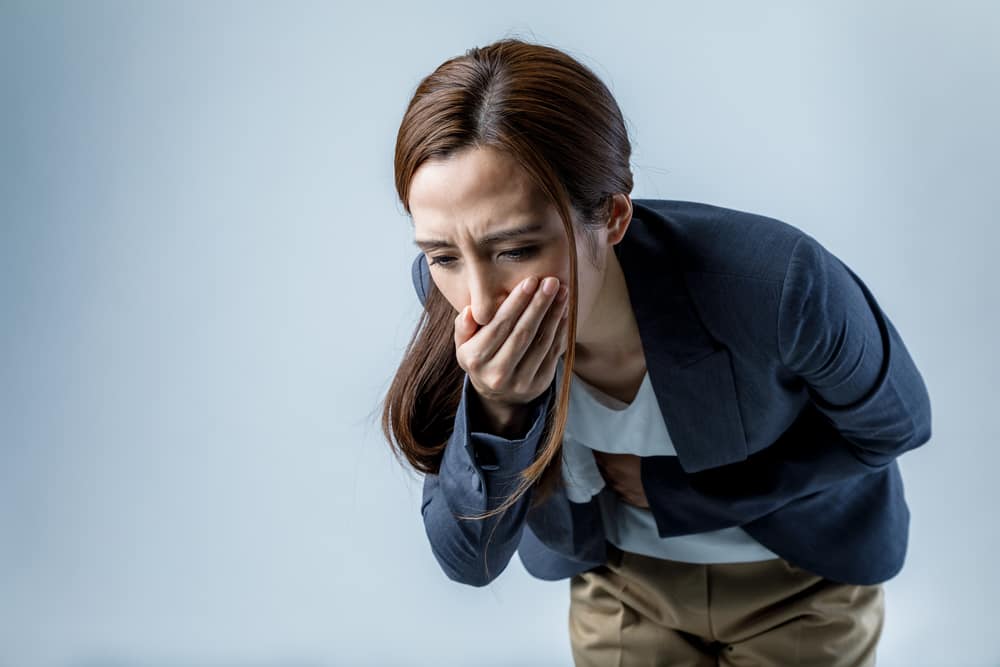Contents:
Medical Video: The effects of underwater pressure on the body - Neosha S Kashef
Photo credit: tophdimgs
Fantastic panorama of coral reefs, magnificent and scary wrecks, and incredible marine life are the main attractions for dive lovers. But it's important to remember the dangers of scuba diving, because some are potentially life threatening.
Health problems that may arise from diving
1. Barotrauma
Divers usually dive into the ocean by squeezing the nose and blowing air through the ears to push more air into the middle ear.
Barotrauma occurs when divers rise and fall too quickly while holding their breath, so that the gas in the middle ear and lungs expands very quickly. This is the result of failing to balance the drastic difference in pressure between the body and the surrounding environment. As a result, divers experience severe ear pain to damage to ear tissue and lungs. This lung injury can be bad enough to cause lung collapse (pneumothorax). Injuries can also allow free air bubbles to escape into the bloodstream. This is called arterial gas embolism. Arterial gas embolism often causes chest pain, breathing difficulties, and neurological problems such as stroke.
2. Vertigo
Vertigo, or feeling dizzy or unsteady, is one of the serious symptoms of barotrauma. The sensation of a spinning head can be dangerous when underwater because it can easily cause disorientation.
The best way to avoid dangerous situations in this water is not to dive if you have a headache, fever or allergies that have not been treated. If that happens, usually treatment for vertigo related to diving involves resting at home, although sometimes headache medications are also needed.
READ ALSO: 4 Effective Moves to Overcome Vertigo
3. Ringing ears (Tinnitus)
Tinnitus is the condition of a constant ringing of the ear, and, as with vertigo, if you dive with headaches or other ear problems, you can risk experiencing this.
When you go down into the depths of the ocean, outside water pressure will squeeze the air in the ear canal, causing a sensation of pressure and pain in the head and ears. You must equalize the pressure in this room with various methods, such as pinching your nostrils while gently blowing your nose. If you do this right, you can resist increasing pressure without problems. However, sinus congestion is caused by a cold, flu, or, allergies will interfere with your ability to equalize the pressure and can cause damage to your eardrum.
READ ALSO: 9 Powerful Tricks to Overcome the Ear of Intake of Water
4. Hypothermia
If you dive in cold water, hypothermia is your main risk. Shivering is your body's response to lower body temperature and one of the initial symptoms of hypothermia; You have to end your dive if you start shivering.
The best way to prevent hypothermia - and most of the other health risks associated with scuba diving - is to use the right equipment and dive with a professional guide if you are an inexperienced diver. Wear appropriate, thick, and quality clothing and diving equipment, especially in cold waters. Adequate head coverings are also important because the head represents the body area that has the potential to lose a lot of body heat.
5. Decompression
Decompression is a medical condition caused by the accumulation of dissolved nitrogen in the body after diving, which then forms air bubbles that clog the bloodstream and nervous system.
Depending on the amount of nitrogen absorbed and where it is located, decompression cases can range from joint pain or skin rashes to numbness, paralysis, and death. The most common signs of severe decompression are dysfunction of the spinal cord, brain, and lungs.
6. Nitrogen
Another danger associated with nitrogen is the narcotic effect of all extra nitrogen deposits in the body. Anyone who has ever been given nitric oxide gas at the dentist must be familiar with this effect. Drugged nitrogen in high concentrations is dangerous because it can damage common sense and sensory perception. As with decompression sickness, nitrogen anesthesia is related to how deep you dive and how much nitrogen your body absorbs.
7. Oxygen poisoning
Oxygen poisoning is usually only a threat to divers who dive more than 41 meters. Like nitrogen, the body absorbs additional oxygen due to underwater pressure. For most divers this is not a problem, but at extreme depths a lot of extra oxygen is absorbed so that it becomes toxic. Effects range from tunnel vision (loss of peripheral vision that makes your eyes focus like in a tunnel) and nausea to muscle twitching, loss of consciousness, convulsions, and drowning.
Oxygen poisoning comes quickly and without warning. The best advice to avoid oxygen toxicity is to realize your depth and obey it.
How common are medical problems that can occur due to diving?
Serious medical problems are not common for scuba divers who do them only for recreation. Although there are millions of diving events each year in the United States, only about 90 deaths are reported each year worldwide. In addition, fewer than 1,000 divers around the world need recompression therapy to treat severe health problems associated with diving.
READ ALSO: What to do before and after swimming
How to avoid health risks from diving?
The most severe deaths and diving-related injuries occur in beginner divers. To be safe, divers must be aware of their physical limits and not push themselves beyond the limits of the body's tolerance.
Other rules that must be followed:
- Don't try diving if you don't feel comfortable with the location of scuba diving, natural conditions, diving groups or your diving equipment. As long as you go down to depth, you should try to match the ear pressure and mask gently.
- Do not dive outside the parameters of the promised limit and / on your dive screen.
- Don't hold your breath as you rise above the water level. You should always go up slowly while breathing normally. The air must flow freely to enter and exit the lungs at any time during your dive.
- Don't panic during diving. If you are confused or afraid during diving, stop, try to relax, and think clearly. You can also get help from your diving friend or guide.
Familiarize yourself with the underwater environment, including the dangers of marine life. Most sea creatures are not aggressive towards divers and the number of wild attack is very rare, accidents can occur and a diver never forgets that he is surrounded by wild nature. Learn which fish, corals and other harmful plants to avoid.
Although there are many risks involved in scuba diving, new divers can minimize hazards through education and training. The open water certification program emphasizes diving physiology, the dangers of scuba diving, and safe diving practices. A trained diver can enjoy sports safely with minimal health risks.












